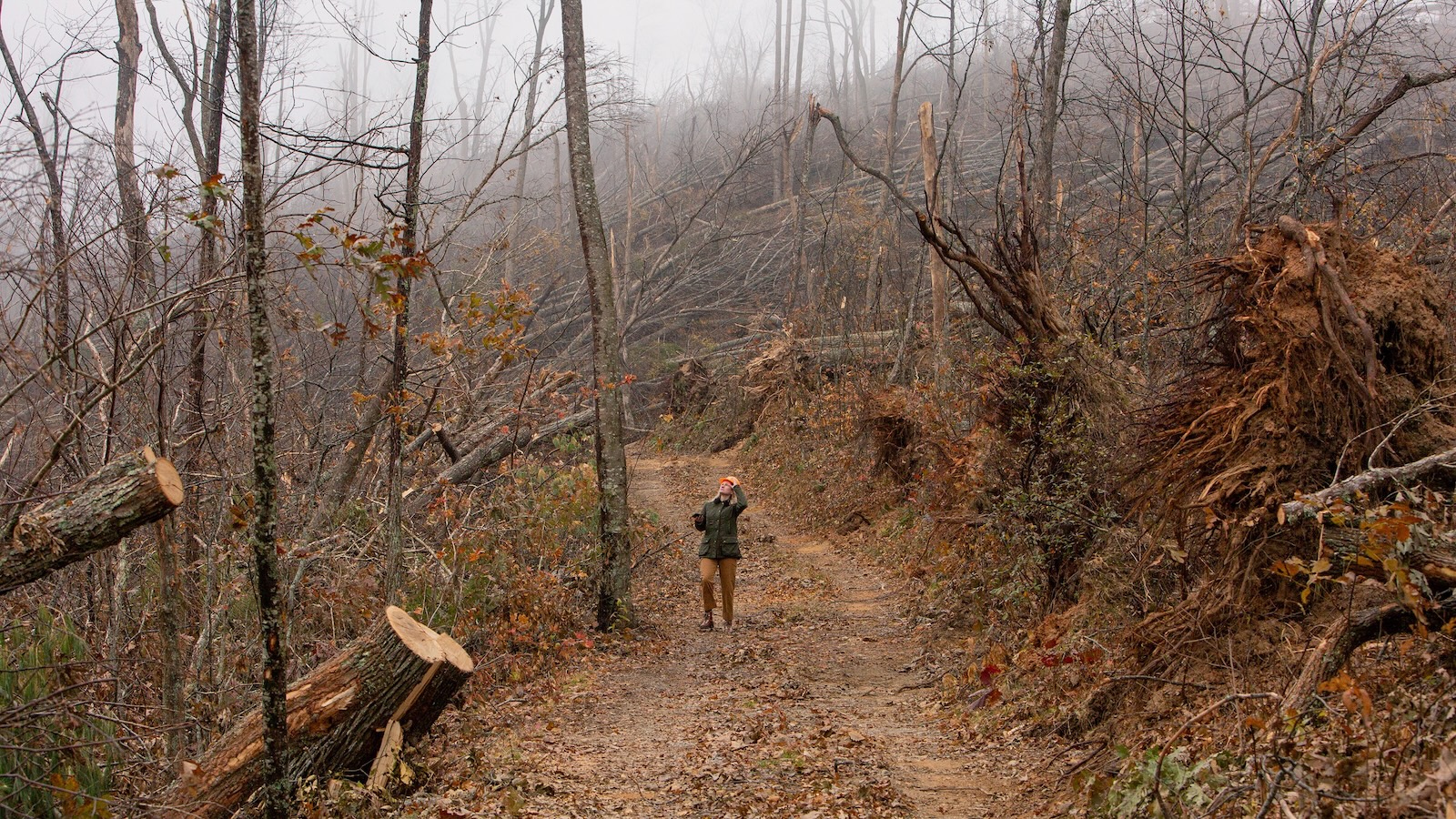Why the Forest Service is logging after Hurricane Helene — and why some say it’s a mistake
Volunteers, scientists, and hikers are asking for transparency in a process they say could prioritize profit over ecosystems.
Katie Myers
Regional Reporter, Appalachia
Apr 15, 2025

Ted Richardson / The Washington Post via Getty Images
In the months after Hurricane Helene leveled thousands of acres in Pisgah National Forest, John Beaudet and other volunteers cleared downed trees from the Appalachian National Scenic Trail. Chopping them up and moving them aside was back-breaking work, but essential to ensuring safe passage for hikers. So he was dismayed to learn that a section of the trail in western North Carolina could remain closed for more than a year because the National Forest Service wants that timber left alone so logging companies can clear it.
“Rather than cut those logs out of the trail and open the trail up, the U.S. Forest Service wanted to salvage those trees as timber,” said Beaudet, an avid hiker who lives near Erwin, Tennessee. Such operations, common after natural disasters like hurricanes and fires, are typically subjected to environmental review, and the government solicits feedback from the public. But when Beaudet tried to comment on the process, he found that was not an option. “For the army of volunteers that work so hard to clear the trail out, it’s kind of a kick in the shins,” he said. The Appalachian Trail Conservancy worked with the Forest Service and local hiking clubs to reroute the trail, but it does not have a timeline for completion for the salvage project, a point of uncertainty for hikers and trail advocates.
Of the nearly 800,000 acres of trees that Helene downed, about 187,000 lie in national forests. Salvage logging is the Forest Service’s primary method of handling such a large disturbance. However, scientists and forest advocates have long questioned whether salvage logging, which brings its own ecological damage, is the best approach and believe it denies nature time to heal. Others argue that such operations are motivated more by profit than safety or environmental concern, and often provide cover for taking healthy trees that still stand.
The fast-track approach to environmental review following Helene has many people concerned that the public isn’t being given any chance to inform the process. According to forest advocates who have been in communication with the Forest Service, the government reportedly plans to announce 15 salvage projects in western North Carolina, including some 2,300 acres in Pisgah alone. The agency did reach out to the state Fish and Wildfire Service and the historic preservation office for consultation, but did not detail what those communications entailed.
Snip...more...
https://grist.org/extreme-weather/why-the-forest-service-is-logging-after-hurricane-helene-and-why-some-say-its-a-mistake/
 Ted Richardson / The Washington Post via Getty Images
Ted Richardson / The Washington Post via Getty Images